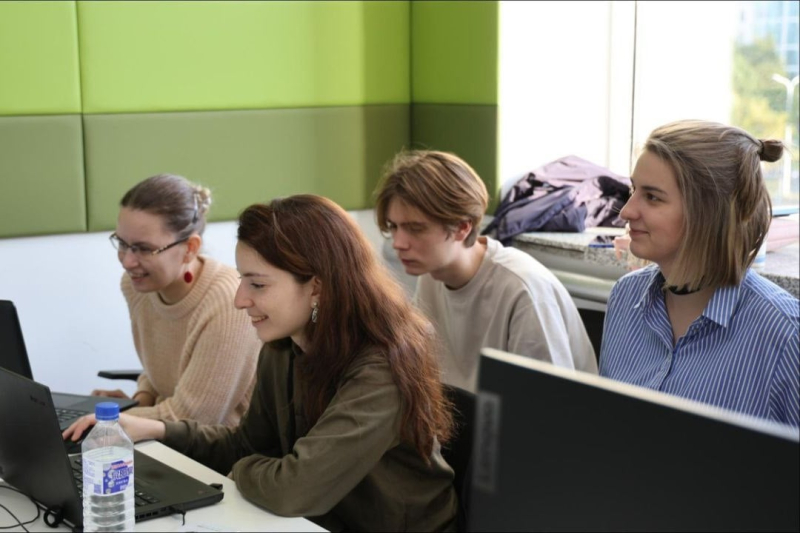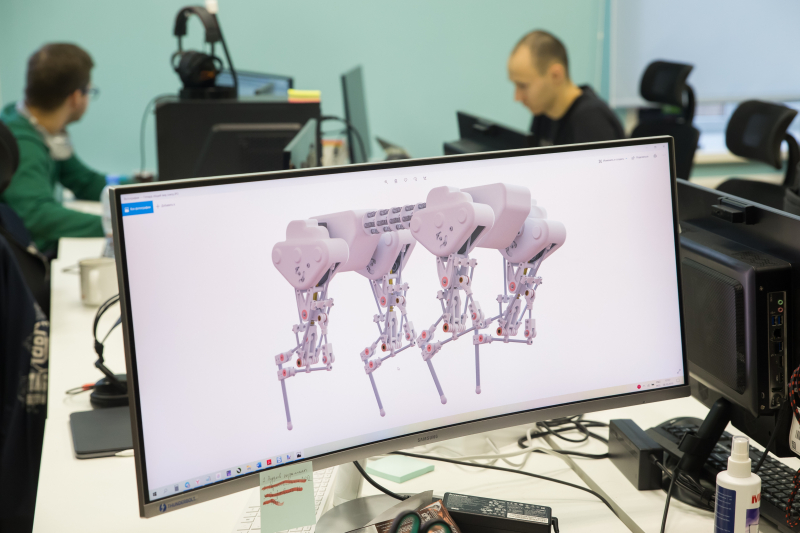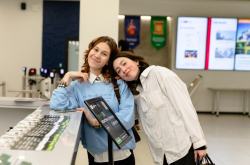Applied Optics
About. This Master’s program is implemented by ITMO’s Higher School of Engineering and Technology. Graduates of the program develop optical, opto-electronic, and optical digital devices for various purposes: from medical, ophthalmological, and astronomical optics to panoramic surveillance, computer vision, object detection, AR/VR systems, laser beam converters, lighting devices, and metrological suites.
Target audience. In the newly-launched online track, practicing specialists will be able to conduct their studies while working in the industry without having to move to St. Petersburg.
Program curriculum.
“In this program, we pay special attention to practical experience, which is why in many of our classes we solve and analyze real-world industry cases. A number of our courses are also taught by lead engineers working in the field. This way, Master’s students get the opportunity to acquire relevant practical experience, ask questions, and receive high-value advice, as well as mentor support and, oftentimes, internship and job offers,” shares the head of the educational program Alexey Bakholdin, a PhD in engineering and an associate professor.
The online track focuses on teaching students to apply general engineering software (Python, MATLAB, MathCAD, COMPAS, and SolidWorks) and specialized libraries (Zemax/OpticStudio, OPAL, Comsol, and others) in optical instrumentation.
“The idea is that our students will immediately put their knowledge into practice at their current workplace. Moreover, their working hours can be counted towards practical training credits and the topic of their thesis can be an answer to a current problem at their company,” adds Dr. Bakholdin.
Students of the online track will communicate with lecturers via Zoom, Moodle, and other digital tools and attend regular consultations, where they will get feedback on their work. According to the program’s coordinators, this helps ensure a high-quality education without the need to choose between studies and work.

Photo courtesy of Higher School of Engineering and Technology
With the new format, the program has now moved away from specializations, adopting a project-based format where students will be able to create their own individual learning tracks with courses and minors.
Career opportunities. Upon graduation, students can work as middle and middle+ engineers in optics at such companies as Shvabe Holding, Electroavtomatica, Opto-TL, Lighting Technologies, LOMO, Hikurtek, Diakont, Radar MMS, Elektropribor, and others. They may also pursue an academic career by enrolling in a PhD program.
Systems Analysis and Control
About. In this program, students are trained as specialists in systems analysis, management, and robotics. Studies include an applied track (focusing on analysis and real-world systems management) and a fundamental one, where students learn the math behind all kinds of systems.
Whereas the offline program pays more attention to analysis and control of specific systems (mainly in robotics), the online one takes a more fundamental approach to systems analysis with a deep theoretical training that can be applied not only in engineering, but also in economic and social systems.
Target audience. The online track will be of interest to students with backgrounds in systems analysis and control, tech systems control, and mechatronics and robotics. Applicants are expected to have a good command of engineering and math (particularly, applied math).
Program curriculum. Students will master systems analysis, game theory models, Fourier analysis and its applications, machine analysis and neural networks, contemporary control theory, adaptive and robust control, and learn to synthesize control algorithms for a wide range of technical systems, including robots. In their training, students will use applied software: MATLAB/Simulink, Python, and SolidWorks.
“We teach students about the tools of analytical thinking that will turn them into system analysis specialists who can work in different fields. This kind of training can be effectively delivered via various online communication and information tools (such as Notion) and virtual classrooms in Zoom, YouTube, and other services. Next year, we are planning to bring it all to a single online platform with more opportunities for communication between teachers and students,” shares the head of the online track Alexey Peregudin, a PhD in engineering.
The knowledge acquired in the program can be used to solve the following practical tasks:
- dynamics analysis in technical objects (including based on incomplete data);
- analysis of social, population, and economic processes using mathematical analysis methods;
- identification of unknown parameters in various processes;
- behavior prediction in systems with complex dynamics.
Career opportunities. Graduates of the program will be able to pursue careers at universities and R&D departments of high-tech companies, including Sberbank’s Robotics Laboratory, Diakont, Navis, Geoscan, and others.
How to apply
Students can choose one of the following ways to get into the program:
- Take an entrance exam;
- Present their research, academic, and professional achievements in the Portfolio Contest;
- Become a winner or runner-up of ITMO’s Mega Contest;
- Deliver the best presentation at the Congress of Young Scientists;
- Become a winner of ITMO Mega School;
- Become a winner or medalist of the I Am a Professional Contest;
- Present a recommendation from the head of the program;
- Win a specialized competition (Winter School in Robotics, Roboforce, Winter School in Engineering, etc.).
ITMO University offers seven more online Master’s programs:
- Artificial Intelligence
- Highload Systems
- Mathematical Technologies for Systems Analysis
- Electric Drive Engineering
- Chemistry Software
- Digital Products: Development and Management
- Product Design
Learn more about these programs here.





